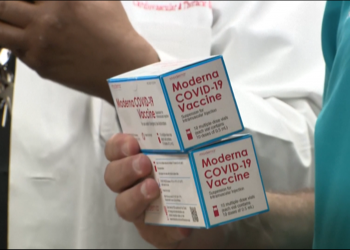WACO, TX – One local economist says to say 2020 has been a rough year is an extreme understatement and the result is devastating to millions who have slipped into poverty, are now food insecure or face housing challenges, or are experiencing mental health issues.
“The pandemic and actions taken to slow the spread of
COVID-19 have been disruptive and, in many cases, devastating,” said Dr. M. Ray Perryman, principal at Waco’s Perryman Group, in a recent forecast.
“It is worthy of note that, beyond the pressing human concerns for those affected, failing to support these vulnerable populations has profound economic consequences, and we’ve studied these phenomena for decades, and the empirical evidence is incontrovertible.
Set aside the obvious consequences of poverty and the unimaginable toll taken on the stability and dignity of families across the U.S., there is tremendous economic cost. Those increased costs will be visible in people’s health care needs, especially those who are food insecure, and the evidence can be seen in increased incidence and severity of disease, which many times have worse outcomes, thus reducing productivity and lifetime earnings.
‘The dislocations caused by the pandemic and the necessary response have caused millions to lose jobs and, for many, their health insurance,” Perryman said, “and each time a person loses health insurance that costs the economy about $46,000 per year. “Others are facing eviction, and we estimate that every newly homeless person brings long-term economic losses of over $900,000,” Perryman added. The added stress also contributes to domestic violence, and every child suffering first time maltreatment brings lifetime costs of almost $2 million, Perryman said.
Perryman says even after his team took full accounting for various stimulus packages, they determined that the increase in poverty in the US during the pandemic will bring long-term losses of $436.4 billion in gross product and 4.7 million job-years of employment. “For Texas, the pandemic-related losses are $48.5 billion in output and over 500,000 job-years,” Perryman said.
He said the benefits of reducing such problems are profound: “We estimate that every $1.00 contributed to combat hunger yields $33.00 in benefits to the economy. “The humanitarian reasons for easing these burdens are readily apparent,” Perryman said, “In this season of giving and celebration, it is also an economic imperative. “In fact, if we fail to do so, we will permanently lose substantial potential activity and productivity even as vaccinations and therapeutics bring prospects of recovery much closer to reality.













